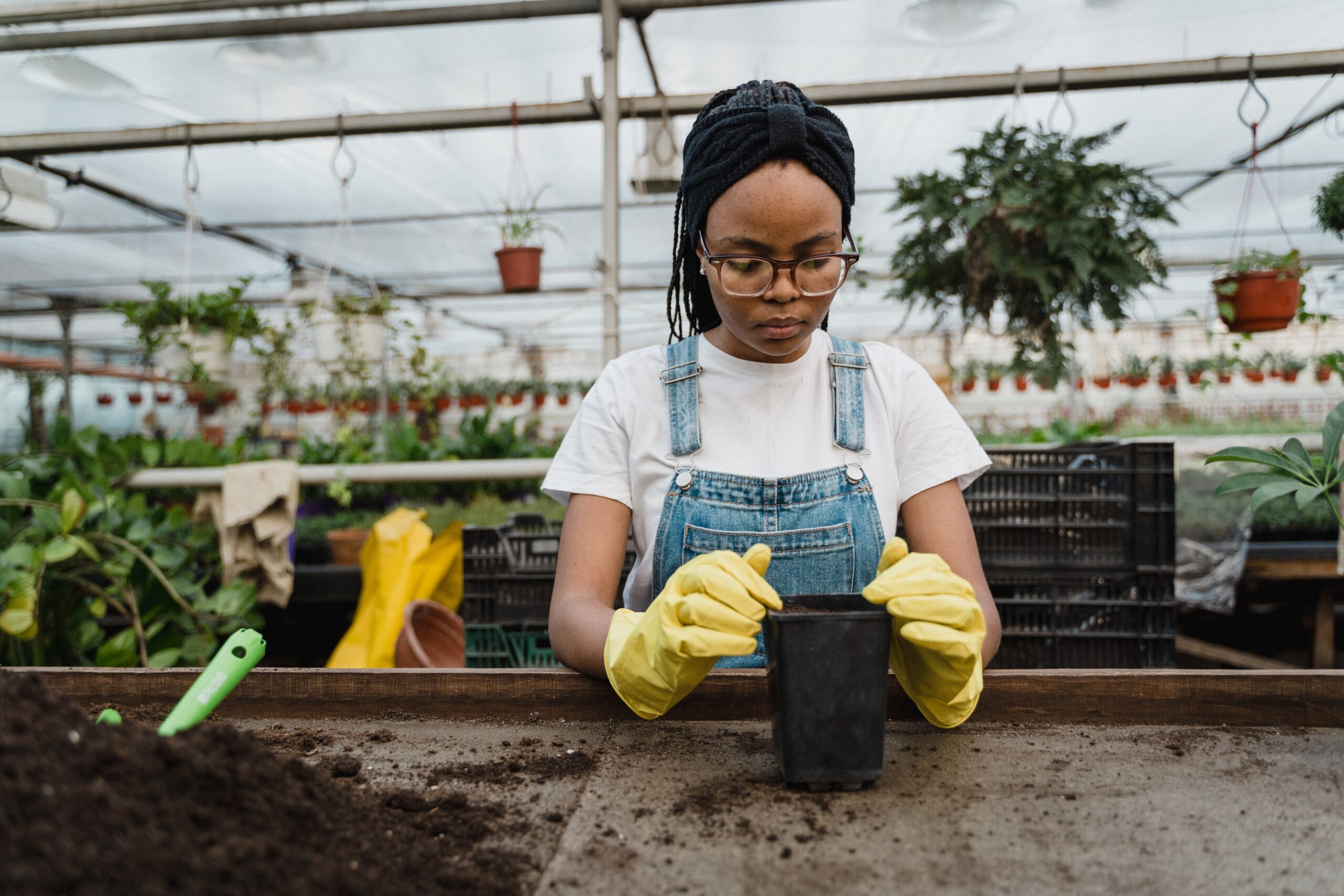Starting a garden in a small area may be a productive and fun experience. Here are some pointers to get you started:
Examine your space: Consider the amount of space you have available for planting. A little garden, a balcony, or even a sunny windowsill may suffice. Understanding your space constraints will allow you to plan appropriately.
Choose the proper plants: Choose plants that thrive in limited places. Herbs, salad greens, cherry tomatoes, peppers, miniature vegetables, and small fruit trees are all excellent choices. Consider plants that can be grown vertically, such as climbing beans or trellised cucumbers.
Make a layout: Make the most of the available area by designing your garden plan. Use containers, hanging pots, vertical planters, and raised beds to increase your planting space. For efficient maintenance, group plants with comparable water and sunlight requirements together.
Choose the correct containers: Ensure your containers have drainage holes to avoid waterlogging. To accommodate diverse plant types, use containers of varying sizes. Space-saving ideas include hanging plants and wall-mounted racks.
Soil and compost: Buy good potting soil or make your own by blending peat moss, perlite, vermiculite, and compost. Compost should be added regularly to supply nutrients to your plants.
Most veggies and herbs need at least 6–8 hours of direct sunlight daily. Examine the sunshine patterns in your area and choose plants appropriately.
Watering: Small gardens may rapidly dry up, so water them regularly. Overwatering, on the other hand, may cause root rot. For precise watering, use a watering can or a drip irrigation system.
Keep a lookout for pests and illnesses. Inspect your plants regularly and take precautions like applying neem oil or introducing helpful insects.
Succession planting: Use succession planting to maximize your restricted area. Replant with another appropriate crop when one expires to lengthen your growing season.
Maintain and care: Remove dead or yellowing leaves regularly, and trim plants to stimulate development and avoid overcrowding.
Gardening is a never-ending learning experience. Pay attention to what works and what does not in your little garden. Adapt your approach as needed, and do not hesitate to experiment with new plants or approaches.
Take pleasure in the process: Gardening is a relaxing and rewarding activity. Enjoy your plants’ progress and the delight of collecting your fruit.
Beginning small and progressively growing your garden might help you efficiently manage your restricted area. With patience and effort, you will soon have a flourishing garden of any size!
Happy gardening!





